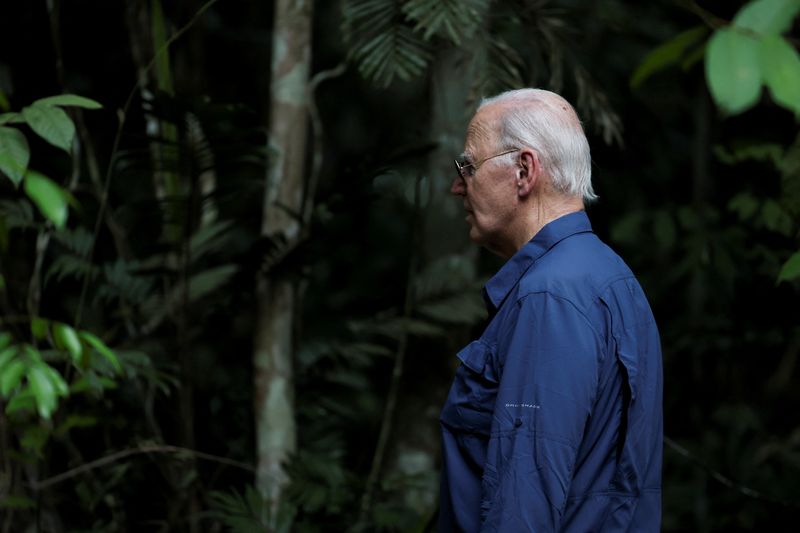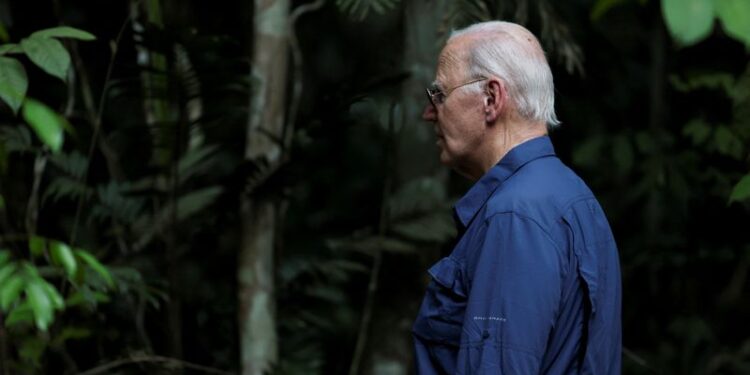By Jarrett Renshaw
MANAUS, Brazil (Reuters) -Joe Biden became the first sitting U.S. president to visit the Amazon (NASDAQ:) rainforest on Sunday, flagging the dangers of global warming often dismissed by President-elect Donald Trump who has vowed to scrap measures to fight climate change.
Biden flew from Lima, Peru, to Manaus, Brazil, the largest city in the Amazon, to meet with local leaders working to preserve the rainforest. He was to head afterward to Rio de Janeiro for a summit of the Group of 20 major economies that will address issues including poverty, global governance and climate change.
While in the Amazon, Biden toured aboard his Marine One presidential helicopter, viewing the confluence of the Amazon and Rio Negro rivers at Manaus, spots where water levels have dropped sharply due to the worst drought in decades and the rainforest.
Biden was accompanied by Brazilian scientist and Nobel Prize winner Carlos Nobre, who has warned that the Amazon may be beyond saving as deforestation has changed the weather patterns that sustain its jungle climate.
Biden also went to the Museum of the Amazon in Manaus where he met with indigenous leaders. People stood along his motorcade route and congregated at the museum entrance, snapping pictures and waving.
Scientists say conservation of the Amazon is vital to curbing climate change because of the vast amount of climate-warming carbon dioxide its trees absorb.
Brazilian President Luiz Inacio Lula da Silva has vowed to end deforestation in his country’s rainforest by 2030 and has urged wealthy nations to contribute to the cause via the Amazon Fund run by Brazil’s state development bank.
In his four-hour stop in Manaus, Biden was to announce an additional $50 million contribution to the Amazon Fund, bringing the U.S. commitment to $100 million.
Last year, Biden said he would request $500 million from the U.S. Congress to support the Amazon Fund. However, the United States had delivered on just a tenth of that pledge by July.
The new contribution was part of the Biden administration’s effort to expand U.S. climate finance six-fold over the last four years to $11 billion annually, the White House said.
That initiative may be on thin ice when President-elect Trump returns to office in January.

Trump has called climate change a hoax and plans to roll back much of Biden’s landmark climate legislation to help pay for the extension of tax cuts secured in his first term.
The incoming Republican president also aims to boost record U.S. oil and production and eliminate rules imposed by Biden to wean gasoline-powered cars off U.S. roads.






